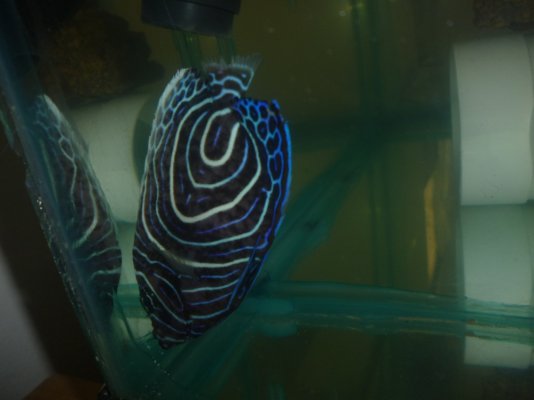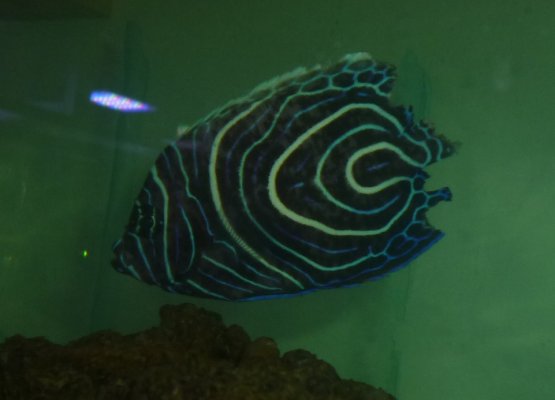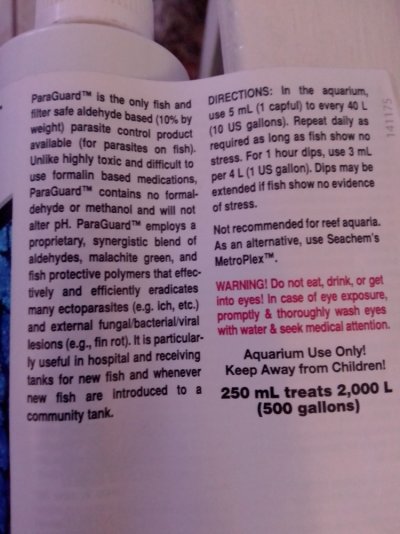It's frustrating, I know
I get your frustration. There is a lot of info out there but not all always applies.

I have not used Paraguard but my sources say that it takes 10-14 days for this med to actually be effective. That's too long for an active infestation IMO. As I previously said, Cryptocaryon can kill a fish in a few days when new or hours if advanced. This comes from the Seachem page on Paraguard:
ParaGuard™ can also be used as a medicated dip. For 1 hour dips, use 3 mL per 4 L (1 US gallon) in a container separate from your main tank. Dips may be extended if the fish show no evidence of stress. Keep in mind that many diseases linger in the water as well as on the fish. Giving a fish a dip treatment does no good if they go right back into infected water. This is why you don't use "main tank water" in a hospital tank. I would have done a dip in this ( or freshwater) before putting the fish into the sterile hospital tank.
My training was always that a quarantine tank was different from a hospital tank. Quarantining is isolating a fish/invert to observe whether medicating is required and/or a place for a new item to get accustomed to their new home and your schedules. The setup should be an established tank as the fish should be in there for a number of weeks. A hospital tank is for medicating and it needs to start out sterile ( just like a human hospital) to better ensure a positive outcome. IME, it takes roughly 5-7 days for brand new water to show signs of ammonia. You should have test kits so you can monitor what your water is doing and react accordingly. Feeding should be limited in a hospital tank to prevent excess waste and buildup of ammonia. If you use the fish as a guide, it is too late once the fish is showing signs of distress.
There was a whole discussion a while back on QT and Hospital tanks and that they could be one tank. My opinion is that that is wrong for most diseases but it is situational. It all depends on what you are treating and what you are treating with. Some meds will kill off the biological filter so you don't want to treat your main tank with a med like that. There is a difference between a prophylactic and a treatment. Paraguard seems to be more a prophylactic but I repeat, I have not used it to know for sure. I usually used the "big guns" to treat sick fish because I wanted them clean quickly.
As for an expiration date on meds, there is usually a date or code stamped somewhere on the bottle or box, separate from the instructions. If it's a code, you should be able to contact the manufacturer to see if that med is still viable.
As for water changes due to ammonia, this is a page from the Seachem site that addresses this:
https://seachem.zendesk.com/hc/en-u...r-changes-when-using-the-Seachem-medications-
Okay, now that we have all that out of the way,

what needs to be addressed is the WHY the fish got sick in the first place. Did it come to you carrying parasites? Was there a sudden change in your aquarium? What stress was the fish under that weakened it enough to be overwhelmed by the parasite? Something occurred in that 11 day period between the fish arriving to you and eating well and the first signs of parasites. The fact that the fish was acting healthy ( eating and such) leads me to believe the issue was on your end vs it coming in with the problem.

( Although the Singapore Angel may have had something to do with it?

)
So for now, I'd leave the tank bare of fish so that there are no hosts for any remaining parasites in your main tank ( which will die off in roughly 4-6 weeks with no hosts) unless you want to install a UV sterilizer to kill off any parasites that are swimming in the tank OR you decide to give the whole tank a freshwater bath to kill off what's in there OR you strip it down and restart. ( Any of these will work. ) And now that we have discussed placing fish in the system in a particular order, you have the ability to do that now.

It's a lot of information, I know. I'd suggest taking some time to find some good books about diagnosing and treating marine fish diseases or search through some of the more reliable internet sites for diseases. Truth be told, fish keeping is more about the habitat and health then the fish themselves.

Hope this helps

 )
)  There are a few Butterflies that will do well in an Aquarium but there are not a lot of them tho.
There are a few Butterflies that will do well in an Aquarium but there are not a lot of them tho.  And your clown tang also get's rather large. I was in the import business and got some from the Marshall Islands that were over 12" long. GORGEOUS fish so enjoy them as they grow.
And your clown tang also get's rather large. I was in the import business and got some from the Marshall Islands that were over 12" long. GORGEOUS fish so enjoy them as they grow. 






 Hope this helps
Hope this helps